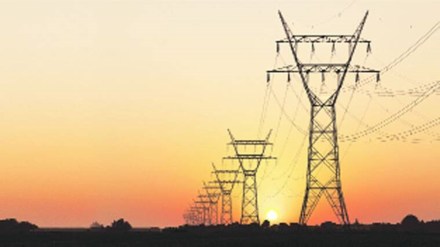The government has recently (on June 2, 2023) asked the Central Electricity Regulatory Commission (CERC) to initiate the process for appointment of a market coupler. ‘Market coupler’ is not a familiar term to many, and it would be useful to explain, at the outset, the role of a coupler. At present, there are three power exchanges operating in India and, therefore, for each product, there are three market clearing prices (MCP). The day-ahead market (DAM) or the real-time market (RTM) are the different products, and there are many more that are currently being offered by the three exchanges. With the appointment of a coupler, there will be only one MCP, pan-India, for each product. The coupler will use the data from the buy and sell bids received at each of the exchanges and arrive at a common price using an algorithm.
The appointment of a market coupler is not an end in itself. The government wants to initiate the appointment of the coupler so that it can introduce a wholesale power market in India by the name of market based economic dispatch (MBED). The plan to introduce MBED is an old one and a beginning was to be made in April 2022 with the central sector generating company, NTPC. Under MBED, all buyers and sellers of power will make a bid in the DAM and a MCP would thus be determined. The bids would be for the energy charge only, and generators would continue to get their fixed charge outside the market. All generators who had quoted below the MCP would be allowed to dispatch. MBED would override the power purchase agreements (PPAs) held by the respective distribution companies (discoms) and, in a sense, all the generating units will be pooled together and the relatively inefficient generators would be left out since the price they would have quoted would be above the MCP. In such a system, one would be meeting the demand in the least-cost fashion.
Also read: Too many dots, too little connect
To operate MBED, there is no doubt one would need a market coupler since a single MCP would be required for the entire country. We cannot have three different MCPs determined in the three exchanges currently in operation. But, do we need a wholesale market right now, especially since we have another system operating right now, the security constrained economic dispatch (SCED), that is working quite well? Under SCED, the same logic of least-cost dispatch is followed. The only difference is that in SCED, the least-cost combination is arrived at not through the market but by the intervention of the load dispatcher, the Grid Controller of India.
The introduction of a market-based dispatch system has several other problems to reckon with. First, how will we deal with the legacy PPAs? At present, the PPAs are owned by the discoms. Can they be forced to prefer bids in the market while the PPAs are still valid? The states with less costly PPAs will definitely raise a hue and cry because under MBED, they will have to vie with other contenders for getting access to the cheaper PPAs. This is not all. The system of MBED will ultimately cover all generating companies, including state generating companies. Can the state generators be compelled to participate in MBED, considering the fact that power is not a Union subject and figures in the Concurrent list?
Second, price bids in MBED will ultimately become single-part price bids once the life of the PPA is over. There won’t be any payment for fixed costs. In such a scenario, will the generators be able to raise enough revenue to set up new capacity? Single-part tariffs are known to be volatile, especially when the demand for power is relatively lean compared to the available supply.
Third, today, only about 8% of the power generated in the country is traded in the exchanges (through DAM and RTM). This is very small compared to the situation in the Western countries where the corresponding ratio ranges between 25-50%. Our attempt should be to first increase the depth of our electricity exchanges; otherwise, whatever monetary saving that would be achieved through the operation of MBED would be minuscule compared to the operational risks one would be undertaking by moving over to a completely new regime.
Also read: Blowing hot and cold
Fourth, in case a market coupler is appointed, the existing electricity exchanges will become mere post-offices. They will lose their incentive to introduce new products, which ultimately will hurt the consumers. The Electricity Act 2003 (EA 2003) states that market development is one of the tasks of the regulatory commissions and we should, perhaps, leave it to the wisdom of the regulators to decide as to when to appoint a market coupler. The CERC, it is rumoured, is still not convinced about the efficacy of MBED, and that possibly explains why the pilot of the scheme could not be introduced in April 2022, as originally planned. It would be pertinent to add that according to the EA 2003, it is the job of the regulators to advise the government on competition and not the other way around.The moral of the story is that steps to set up a coupler should only be initiated after one is sanguine that all other hurdles of a market-based dispatch have been cleared. We should not land ourselves in a mess by destroying the electricity exchanges by appointing a coupler only to realise that the operation of the MBED system is difficult due to other reasons not originally envisaged. We should, at present, only concentrate on how to enhance the depth of our electricity exchanges.
The writer is Senior visiting fellow, ICRIER
Views are personal
